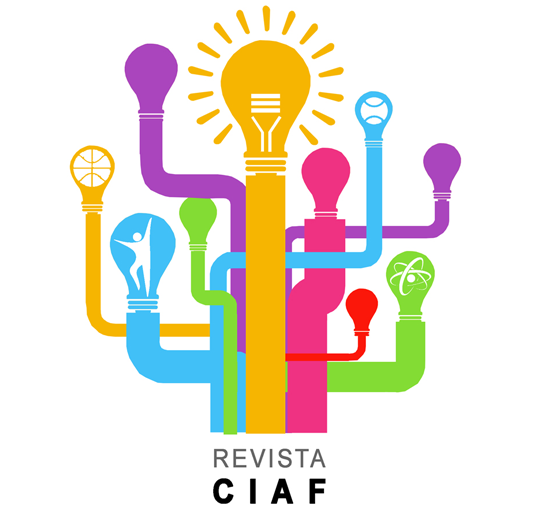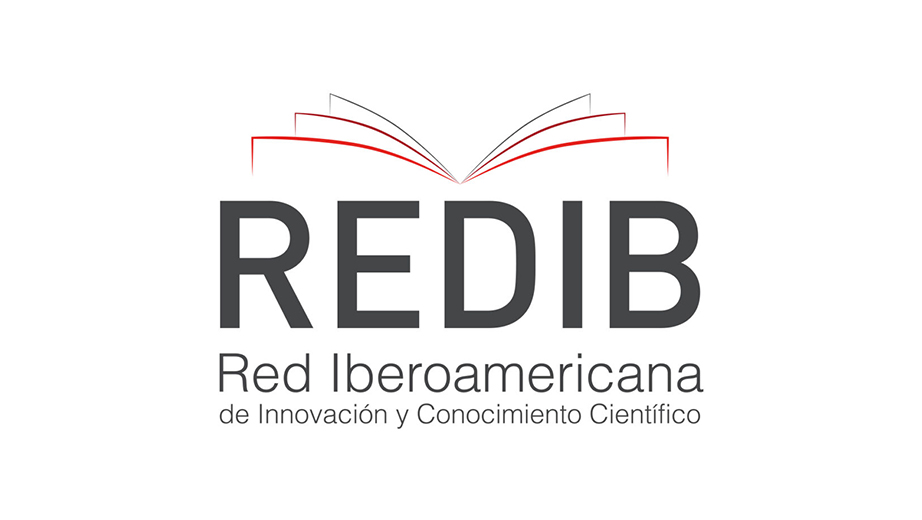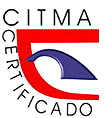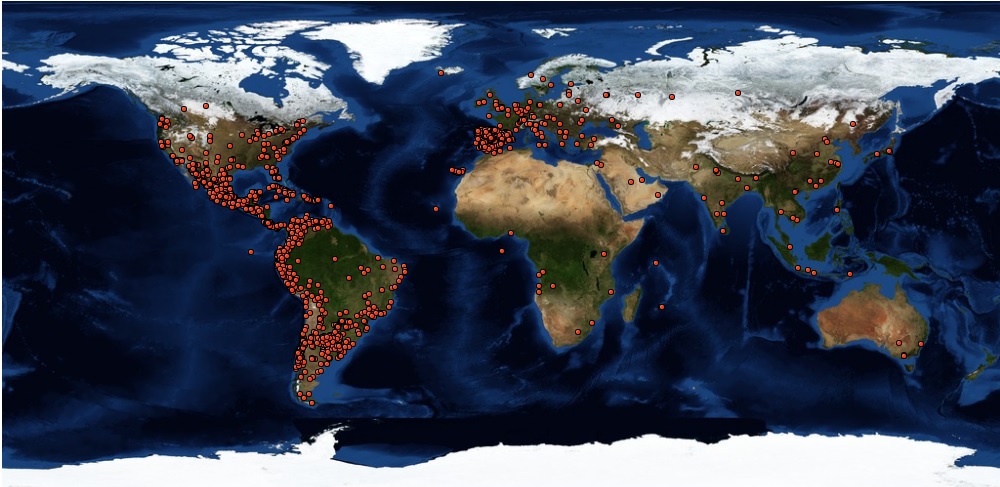
Journal Policies
Peer evaluation process:
CIAF is an arbitrated journal that selects articles to be published through the process of external review by expert peers (Double-Blind Peer Review) anonymously using the “double-blind” method, where neither authors nor reviewers identify each other, maintaining anonymity on both sides and among the reviewers themselves.
Once the CIAF editorial team has verified that the article complies with the standards regarding style and content, indicated in the guidelines for authors, the manuscript will be sent to two anonymous expert reviewers within the field of study of the article, who They will send their reports to the editorial board following the journal's protocol; if there is a discrepancy, it will be sent to a third evaluator. According to these reports, the result of the review (rejected, accepted with modifications or accepted), as well as the observations and comments of the reviewers, will be communicated to the main author. If the manuscript has been accepted with modifications, the authors must resubmit a new version of the article, which will be reviewed again by the same reviewers. If they wish, the authors can also provide a letter to the editor, in which they will indicate the content of the modifications to the article. If the authors have decided not to follow the reviewers' recommendations, they may justify their decision in that same letter. In all cases, this review process protects both the authors and the experts who review the manuscripts, maintaining special care with established ethical standards and avoiding conflicts of interest.
The CIAF editorial team will keep the authors informed of the works received and their subsequent acceptance or not to continue in the process, and they will be able to know the moment in which they are in it, reserving the right to reject the articles that it does not deem appropriate for your publication. The essential criteria that are evaluated for the publication of an article are: correspondence with the interest profile of the publication and its readers; originality, novelty or validity of the study; importance for research or practice in the field covered; methodological and content quality; conclusions based on the results and objectives. Additionally, compliance with ethical standards; quality of presentation (structure and writing); adequacy, timeliness, value and presentation of bibliographic references; compliance with the instructions for the presentation of the works.
Within the body of reviewers of this magazine, professionals from different universities around the world and from Cuba who work in this field stand out.
Anti-Plagiarism Policy:
In the academic environment it is necessary to forge ethical criteria for publications, as a parameter for informative quality; essential in communication with all audiences. Therefore, the authors will ensure that the data and results presented in the work are original and have not been copied, invented, distorted or manipulated. Therefore, CIAF emphasizes that in the evaluation process the originality of the works is monitored and plagiarism and redundant publications are detected, as well as possible falsified or manipulated data. Serious breaches of ethics are considered scientific fraud.
By the way, the Editorial Board of the journal reserves the right to disavow those works already published that are subsequently determined to be unreliable, as a result of involuntary errors, fraud or poor scientific practices: manufacturing, manipulation or copying. of data, plagiarism of texts and redundant or duplicate publication, omission of references to the sources consulted, use of content without permission or without justification, among others. The objective that guides the disavowal is to correct the scientific production already published, to ensure its integrity.
To detect plagiarism, CIAF has the Plagiarism prevention that simply Works, Urkund
Urkund is an automatic program that allows you to review theses, essays, monographs, assignments and other written works with the intention of reviewing their degree of similarity with other sources such as web pages, libraries, books and even your own databases.
Copyright Policies:
The authors will retain their copyright and guarantee the magazine the right of first publication of their work, which will simultaneously be subject to the Creative Commons Attribution License that allows third parties to share the work as long as their authorship is indicated and not use for commercial purposes.
Ethical aspects:
Copying the ideas of others without their permission or acknowledgment of credit, falsifying data, including data that is impertinent or that contradicts the conclusions of the research, accommodating conclusions to weaknesses in the test data, or changing the methodology, design or results of research to respond to the demands of funding sources or others, are ethical aspects that are always observed in the process of evaluating an article.
This CIAF scientific journal considers the following behavioral errors:
The falsification or fabrication of data; that is, data altered, manipulated or simply designed to fulfill the author's purpose.
Plagiarism consists of the use of ideas or data from others, as if they had been produced by the author of the article or when large amounts of text are taken without giving the corresponding credit. Also, when they reuse fragments of texts that have been produced by themselves (greater than 250 words, for example) and put together a new article, this is called self-plagiarism and is illegal, in addition to calling into question the quality of the author. Plagiarism and self-plagiarism are considered copyright infringements and punishable by law, according to different levels of severity.
From the author's perspective, the good practice of saving their drafts for a reasonable time is recommended to demonstrate, if necessary, that the article was created by them. Likewise, it is suggested to archive the original research data for a reasonable period of time, as proof of who generated it.
Redundant or duplicate posts; simply what some authors do, without any responsibility on their part, by taking an article and sending it simultaneously to several journals. But, it becomes an even bigger mistake if they manage to get two or more journals to publish the same article, which will only be their mistake, since only they will know which journals they sent their manuscript to. Therefore, redundant publications are sanctioned by editors, and in turn, the journal warns that it does not accept articles if they are not original.
The editors check when an article has been duplicated and which of the two was published first, through the acceptance date that the journal sets when publishing it. The authors will be aware of this offense and will record it within their rules of conduct to avoid it.
CIAF requires authors to sign a letter of originality, which is the commitment that guarantees that they have not sent the article to other publications simultaneously. From the magazine's point of view, this is a healthy way to warn and prevent them; However, the essential thing is that they become aware so that this bad practice does not happen.
Ethics in publishing
CIAF follows a rigorous control procedure for the originals received to avoid bad scientific practices and guides its users in maintaining correct ethics in publication.
To this end, the international standards established by COPE are followed, subscribing to the standards for editors established at the 2nd World Conference on Research Integrity in Singapore in 2010.
In order to facilitate the decision-making process in cases where unethical behavior is detected or observed, a protocol inspired by the Publishing Ethics Resource Kit (PERK) model is followed:
- Authorship conflicts.
- Plagiarism.
- Duplication, concurrent publications or simultaneous submissions to several publications.
- Appropriation of research results.
- Fraud or research errors.
- Violation of research standards.
- Undisclosed conflicts of interest.
- Reviewer bias.
In this regard, the CIAF editorial board follows the decision flows recommended by Wiley's Best Practice Guidelines on Publishing Ethics. And evaluation tools are used to detect bad practices in order to guarantee compliance with the quality standards of the publication, and maintain the original and unpublished nature of the published results. https://headachejournal.onlinelibrary.wiley.com/doi/pdf/10.1111/head.12455
Self-Archiving Policy:
CIAF for Digital Archive Preservation uses the LOCKSS system to create a distributed archiving system among collaborating libraries, allowing them to create permanent archives of the journal for preservation and restoration purposes.
The journal allows self-archiving and dissemination of articles in institutional repositories, social networks, academic and scientific profiles, including the publication's bibliographic data.
In addition, the magazine has an internal self-archiving policy that allows all information to be preserved and restored.
Open Access Policy:
The magazine aims to be an instrument for disseminating the work of the academic and scientific community. It is not for profit, therefore, it does not pay for the collaborations it receives. The publication provides immediate free access, which is why it adheres to the Open Access Journal movement and delivers all of its contents to various repositories, under the principle of making information available for free to all interested parties. to promote the dissemination and exchange of global knowledge.
The journal offers its publishing services to authors completely free of financial remuneration. The above implies that collaborators do not have to assume the costs for: reception, number of pages, color, translation, revision, as well as other actions that are required to conclude the publication process; These expenses are fully assumed by the institution that manages the magazine. Those who access Science and Physical Activity Magazine can read, download, copy, distribute, print, translate, search or link the full texts of the articles that are published in accordance with the Creative Commons Attribution License 4.0.
License Terms:
CIAF assumes the Creative Commons Attribution-NonCommercial 4.0 International License
You are free to:
Share — copy and redistribute the material in any medium or format
Adapt — remix, transform and build from the material
The licensor cannot revoke these freedoms as long as you follow the terms of the license.
Under the following terms:
Attribution — You must give appropriate credit, provide a link to the license, and indicate if changes were made. You may do so in any reasonable manner, but not in such a way as to suggest that you or your use are endorsed by the licensor.
Non-Commercial — You may not use the material for commercial purposes.
No additional restrictions — You may not apply legal terms or technological measures that legally restrict others from making any use permitted by the license.






